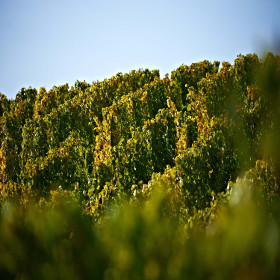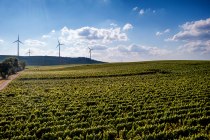Winery Dackermann
Wine of a new generation ... tradition meets modernity
Dear wine lovers
First, let us introduce ourselves.
The winery Dackermann has been a traditional family business since 1913, which has been owned by the family for four generations.
Despite all tradition we are young... dynamic... creative... qualitative...
For four years I, Sascha Dackermann, as master winemaker have been responsable for the winery, for delicious and fully ripe grapes of high quality. When we grow grapes we work very gently and only with what nature gives us year after year.
Our wine assortment is structured in pyramidal form:
In the bottom, you can find our LITER WINES. They form the basis of our product range. Harmonious and fruity wines with a good price-performance ratio.
Second are the GUTSWEINE (estate wines). They are typical representatives of our winery: characterized by an expressive
Structure and their typical taste. It is important to us that these wines have a pronounced and fruity taste.
In third place are the ORTSWEINE (village wines). Our local wines come from the old and mineral vineyards around Hessloch, Bechtheim and Dittelsheim. The fresh and fully ripe grapes give our local wines their unmistakable, independent character.
Our top quality are the LAGENWEINE, whose birthplace are the oldest and best plots of our vineyards. The wines are powerful and expressive, characterized by the soil and the rock on which they grow. Our top locations include Mondschein, Steinbügel, Liebfrauenberg, Hasensprung, Heilig Kreuz, Stein, Löwenberg, Kloppberg and the Leckerberg.
On the estate English and German are spoken.





















